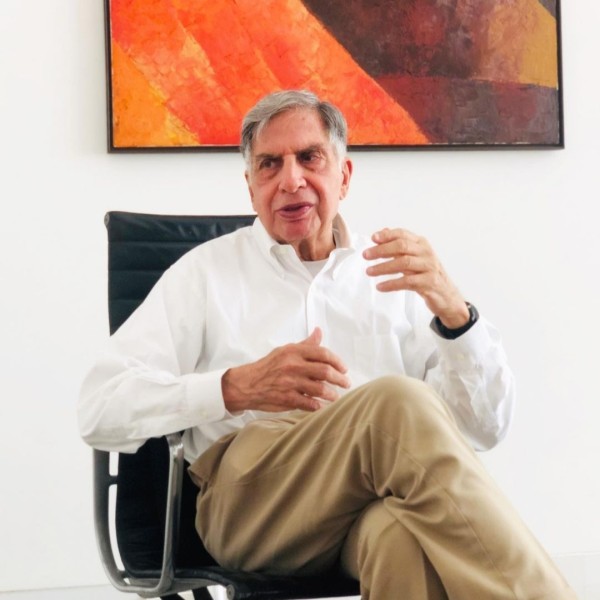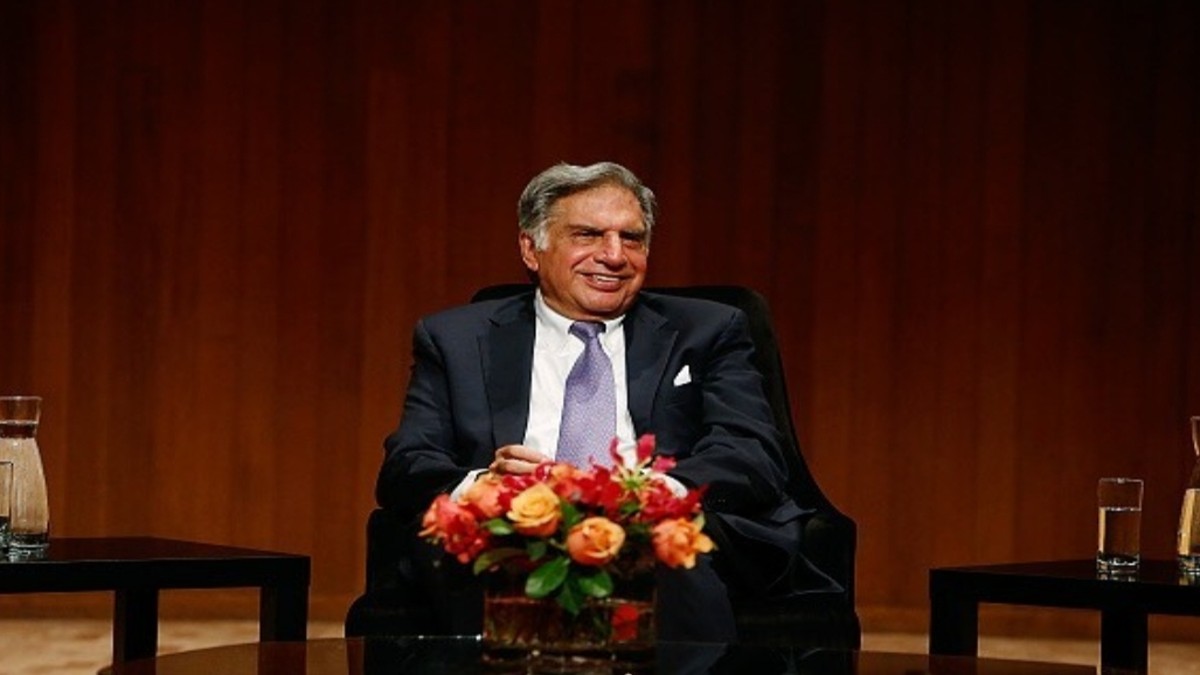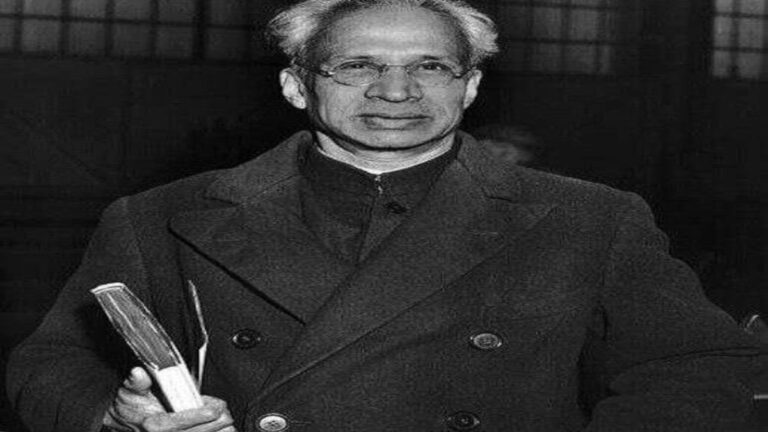The Legacy of Ratan Tata
Ratan Tata, Ratan Naval Tata, a titan of Indian industry and the former chairman of Tata Sons, is an iconic figure whose legacy extends beyond corporate success. Revered for his business acumen, philanthropic endeavors, and ethical leadership, Ratan Tata’s influence spans industries, geographies, and generations. His tenure as the leader of the Tata Group, one of India’s largest conglomerates, transformed not only the company but also India’s standing on the global business stage.
This article delves into the multifaceted legacy of Ratan Tata, exploring his early life, career, the transformation of Tata Group under his leadership, his values-driven approach to business, and his enduring contributions to society.
Early Life and Education: The Making of a Leader
Born on December 28, 1937, in Bombay (now Mumbai), Ratan Tata was born into a prominent Parsi family. He is the great-grandson of Jamsetji Tata, the founder of the Tata Group, a man known as the “Father of Indian Industry.” Ratan’s upbringing in a family that emphasized both entrepreneurial spirit and ethical responsibility played a pivotal role in shaping his character and vision.
Despite his privileged background, Ratan Tata faced challenges early in life. His parents, Naval Tata and Sonoo Tata, separated when he was just 10 years old, and he was raised primarily by his grandmother, Lady Navajbai Tata. This separation had a profound impact on young Ratan, fostering in him resilience, emotional sensitivity, and an unwavering sense of responsibility toward his family and society.
Ratan Tata pursued his education in India and the United States. After completing his schooling at the Campion School in Mumbai and the Cathedral and John Connon School, he went on to study architecture at Cornell University, graduating in 1962. He later attended the Advanced Management Program at Harvard Business School in 1975. These educational experiences not only equipped Tata with knowledge and technical skills but also exposed him to diverse global perspectives, which would later influence his leadership style.

Joining the Tata Group: Humble Beginnings
Ratan Tata’s entry into the family business was not as glamorous as one might expect. In 1962, upon returning to India, he joined Tata Steel, the group’s flagship company, as a blue-collar worker in Jamshedpur. He spent time on the shop floor, shoveling limestone and handling the blast furnace, experiences that gave him a deep understanding of the challenges faced by workers and the intricacies of the manufacturing process.
This hands-on experience proved invaluable in shaping Tata’s leadership philosophy, which emphasized humility, empathy, and a bottom-up approach to decision-making. His willingness to start from the ground up earned him the respect of employees and set him apart from other business leaders of his time.
The Rise to Leadership: A New Era for Tata Groupv
Ratan Tata’s path to the top of the Tata Group was neither swift nor easy. For nearly two decades, he held various positions within the company, learning the ropes and gaining the trust of his colleagues and stakeholders. In 1991, after the retirement of J.R.D. Tata, Ratan Tata was appointed chairman of Tata Sons, the holding company of the Tata Group.
His ascension to leadership came at a time of significant change for India. The country was undergoing economic liberalization, opening its markets to foreign investment and competition. The Tata Group, a collection of over 100 businesses operating in industries ranging from steel to hospitality, was at a crossroads. Many of its companies were run as independent entities with little cohesion, and some were struggling to stay profitable.
Ratan Tata saw the need for change. His first major challenge was to consolidate and streamline the sprawling conglomerate. He focused on bringing all the Tata companies under a single unified brand, implementing a group-wide code of conduct, and promoting collaboration among the businesses. This was a bold move in a company where individual autonomy had long been the norm.
Under his leadership, the Tata Group adopted a more global outlook. Ratan Tata spearheaded a series of high-profile international acquisitions that transformed the company into a global powerhouse. Some of the most notable acquisitions include:
- Tetley Tea (2000): Tata’s acquisition of the UK-based Tetley Tea for $431 million was a landmark deal, making Tata the second-largest tea company in the world. It was also the first major overseas acquisition by an Indian company, signaling the emergence of Indian businesses on the global stage.
- Jaguar Land Rover (2008): In one of his most ambitious moves, Ratan Tata led the Tata Group in acquiring the iconic British brands Jaguar and Land Rover from Ford for $2.3 billion. Despite initial skepticism from industry analysts, Tata’s foresight proved correct. Under Tata’s stewardship, Jaguar Land Rover turned profitable and became one of the group’s most successful ventures.
- Corus Steel (2007): The acquisition of Corus, a European steelmaker, for $12 billion marked Tata Steel’s entry into the global steel market. It was the largest acquisition by an Indian company at the time and helped Tata Steel become the world’s fifth-largest steel producer.
These acquisitions demonstrated Ratan Tata’s global vision and his ability to think strategically. By expanding the Tata Group’s international footprint, he ensured that the company could compete on a global scale, diversify its revenue streams, and reduce its reliance on the Indian market.
A Values-Driven Approach: The Tata Ethos
What truly sets Ratan Tata apart from many business leaders is his unwavering commitment to ethical business practices. Throughout his career, he consistently prioritized integrity, transparency, and social responsibility over short-term profits.
The Tata Group has long been known for its emphasis on corporate social responsibility (CSR), a legacy that dates back to its founder, Jamsetji Tata. Ratan Tata carried forward this tradition, ensuring that the group’s success was shared with the communities in which it operated. The Tata Group’s companies allocate a portion of their profits to philanthropic trusts, which fund initiatives in education, healthcare, rural development, and the arts.
One of the most significant examples of Tata’s commitment to social good is the creation of the Tata Nano. In 2008, Ratan Tata launched the Tata Nano, a small, affordable car aimed at providing an alternative to the unsafe two-wheelers commonly used by families in India. The car was marketed as the “people’s car” and was intended to revolutionize transportation for India’s lower-middle class.
Although the Nano ultimately failed to achieve commercial success due to various market factors, the project demonstrated Tata’s genuine concern for the common man and his desire to create products that improve people’s lives.
Another key aspect of Ratan Tata’s leadership was his emphasis on sustainability. Long before sustainability became a buzzword in corporate circles, Tata was pushing for environmentally responsible practices across the group’s companies. From reducing carbon emissions in steel production to promoting renewable energy initiatives, Tata championed the cause of environmental stewardship.
A Visionary for a Modern India
Ratan Tata’s leadership was not confined to the boardroom. He was deeply committed to the idea of India as a global economic powerhouse, and he played a key role in shaping the country’s business landscape during its post-liberalization phase.
Tata was a strong advocate for India’s integration into the global economy. He believed that Indian companies could compete with the best in the world if they embraced innovation, adopted global best practices, and built strong international partnerships. His vision for India was one of self-reliance, where Indian businesses could lead on the global stage without compromising their values.
Tata’s leadership extended beyond the corporate world. He was appointed to several government advisory bodies and played an instrumental role in crafting policies that encouraged foreign investment, infrastructure development, and technological advancement in India. He also served as a mentor to many young entrepreneurs, offering guidance and support to those looking to build businesses that could make a positive impact on society.
A Quiet, Humble Persona
Despite his immense success and influence, Ratan Tata has always maintained a low profile. Known for his humility and down-to-earth nature, he has often shied away from the limelight, preferring to let his work speak for itself. Unlike many of his contemporaries, Tata has never sought personal wealth or power. Even as chairman of one of India’s largest conglomerates, he lived a modest life, choosing to reside in a simple apartment rather than a palatial mansion.
Tata’s humility and empathy extend to his interactions with employees, stakeholders, and the broader public. He is known for his personal touch, often writing handwritten notes to employees or visiting the families of workers who have been affected by tragedies. His ability to connect with people from all walks of life has endeared him to millions, making him one of India’s most beloved business leaders.
Philanthropy: A Legacy of Giving
Ratan Tata’s commitment to philanthropy is perhaps his most enduring legacy. The Tata Group has long been associated with charitable giving, and under Ratan Tata’s leadership, the group’s philanthropic efforts have only expanded.
The Tata Trusts, which control a majority of Tata Sons, are among the largest and most influential philanthropic organizations in India. The Trusts fund initiatives in education, healthcare, rural development, and scientific research, among other areas. Ratan Tata has been personally involved in many of these initiatives, ensuring that the group’s wealth is used to benefit society at large.
One of Tata’s most significant philanthropic contributions came in 2020 when he pledged a substantial amount toward COVID-19 relief efforts. The Tata Group’s donations helped fund the production of ventilators, personal protective equipment (PPE), and other critical supplies during the pandemic. Tata’s swift response to the crisis exemplified his commitment to using his resources for the greater good.
Life After Retirement: A Continuing Influence
Ratan Tata officially stepped down as chairman of Tata Sons in 2012, passing the baton to his successor, Cyrus Mistry. However, his influence within the Tata Group and the broader business community remained strong. His post-retirement phase has been marked by continued engagement in philanthropy, entrepreneurship, and mentorship, while his personal legacy continues to inspire new generations of business leaders.
The Cyrus Mistry Episode: A Challenging Period
One of the most high-profile events in the post-retirement life of Ratan Tata was the boardroom battle that led to the ouster of Cyrus Mistry as chairman of Tata Sons in 2016. Mistry’s removal sparked a media frenzy and was followed by a legal dispute that raised significant questions about corporate governance and the role of family-run businesses in modern India.
Mistry, a member of the Shapoorji Pallonji family, was selected by Ratan Tata himself to be his successor. However, over time, differences emerged between Mistry and Tata over the strategic direction of the group. While Mistry pushed for more aggressive cost-cutting and changes in the governance of some Tata companies, Tata was concerned that these moves were eroding the group’s long-held values.
In October 2016, the board of Tata Sons made the controversial decision to remove Mistry from his role, and Ratan Tata temporarily returned as interim chairman. While the episode was widely reported as a clash of personalities and visions, it ultimately underscored Tata’s deep commitment to preserving the ethical foundation of the group. The Tata Group’s ethos, which emphasizes integrity, social responsibility, and long-term value creation, remained non-negotiable for Ratan Tata.
The legal battle between Mistry and the Tata Group reached India’s Supreme Court, which eventually ruled in favor of Tata Sons, vindicating Tata’s stance. While the episode was a rare public controversy in Ratan Tata’s otherwise spotless career, it reinforced the importance he placed on safeguarding the legacy of the Tata brand, even at the cost of personal or organizational strife.
The Tata Nano: A Lesson in Innovation and Market Realities
The Tata Nano project remains one of the most talked-about initiatives of Ratan Tata’s career, not just because of its ambition but also because of its outcome. Tata’s dream was to create an affordable car for the masses, a project that he took up after seeing a family of four precariously perched on a scooter during a rainy day in Mumbai. He envisioned the Nano as a safe and affordable car that could democratize mobility in India.
Introduced in 2008, the Tata Nano was the world’s cheapest car, priced at around $2,000. However, despite the initial buzz and excitement surrounding the car, it failed to meet sales expectations. Several factors contributed to this, including the perception that owning a Nano meant settling for a “cheap” product, manufacturing delays, and marketing missteps.
For Tata, the failure of the Nano was not just a business setback but a personal disappointment. However, he continued to defend the intent behind the project, emphasizing that the car was designed with the common man in mind, and that its shortcomings were a reflection of market dynamics rather than a failure of innovation.
The Tata Nano episode is a significant chapter in Ratan Tata’s legacy, not because of its commercial failure, but because it illustrates his willingness to take bold risks in pursuit of ideas that could benefit society. In a world where businesses are often driven solely by profit motives, Tata’s focus on societal impact stands out as a testament to his visionary thinking and ethical leadership.
Ratan Tata’s Support for Startups: Nurturing a New Generation of Entrepreneurs
In his post-retirement years, Ratan Tata has become an active angel investor, supporting a wide range of startups in India’s burgeoning tech ecosystem. His involvement in the startup world is another reflection of his forward-thinking mindset and his belief in the power of innovation to drive societal change.
Tata has invested in several high-profile Indian startups, including Ola, the ride-hailing company, Paytm, the digital payments giant, and UrbanClap (now Urban Company), a home services platform. His support for these ventures has not only provided them with financial backing but also lent them credibility in the eyes of other investors and the public.
What distinguishes Tata’s approach to startup investing is his focus on businesses that have the potential to create positive social impact. For instance, his investment in Repos Energy, a startup focused on delivering fuel at doorsteps using technology, aligns with his broader vision of leveraging innovation to solve real-world problems.
Tata’s engagement with startups also extends to mentorship. Despite his busy schedule, he is known to take a personal interest in the growth and development of the companies he invests in, offering advice and guidance to young entrepreneurs. Many founders have spoken about how a simple conversation with Ratan Tata has transformed their approach to business and leadership.
The Global Impact of Ratan Tata’s Leadership
Ratan Tata’s legacy is not confined to India. His leadership has had a profound impact on the global stage, particularly through the Tata Group’s international ventures. Under his leadership, the group expanded its global footprint through a series of strategic acquisitions, including Tetley, Jaguar Land Rover, and Corus Steel, as mentioned earlier.
Tata’s international ventures not only brought global recognition to the Tata brand but also showcased India’s capabilities in managing large, complex multinational corporations. Through these acquisitions, Tata demonstrated that Indian companies could successfully integrate with and manage foreign businesses, even in highly competitive markets like the UK and Europe.
Jaguar Land Rover, in particular, became a symbol of Tata’s global ambition. When the Tata Group acquired the struggling British luxury car brands in 2008, many skeptics doubted whether an Indian company could turn them around. However, under Tata’s leadership, Jaguar Land Rover not only regained profitability but also became a leading player in the global luxury car market. This achievement helped enhance India’s reputation as a global industrial powerhouse.

Personal Life and Unfulfilled Dreams
For all his achievements, Ratan Tata remains a deeply private individual. He has never married and has often spoken candidly about his personal life, including his regrets about not having a family. In interviews, he has mentioned how he came close to getting married multiple times but circumstances and timing didn’t align.
Tata’s bachelor status has, however, never deterred him from forging deep connections with people. His employees, friends, and associates often speak of his warmth, generosity, and ability to make people feel valued. He is also known for his love of dogs, with his beloved pets often accompanying him at work and in his private moments.
While Tata’s personal life may have been marked by unfulfilled dreams, his professional and philanthropic achievements have more than compensated for any personal regrets. His life’s work stands as a testament to his belief in building institutions that endure, serve society, and operate with integrity.
Honoring Ratan Tata: Awards and Recognition
Ratan Tata’s contributions have been recognized both in India and internationally. Over the years, he has received numerous awards and accolades, including:
- Padma Bhushan (2000): India’s third-highest civilian award, recognizing his contributions to trade and industry.
- Padma Vibhushan (2008): India’s second-highest civilian award, honoring his leadership and philanthropic efforts.
- Honorary Knight Commander of the Order of the British Empire (KBE): This honor was bestowed upon Tata by the British government in recognition of his contribution to strengthening economic ties between India and the UK, particularly through Tata Group’s acquisition of British companies like Jaguar Land Rover.
Tata has also been honored by prestigious institutions around the world, including Cornell University, which awarded him an honorary degree, and Harvard Business School, where he is celebrated as one of the most influential business leaders of his generation.
The Future of Ratan Tata’s Legacy
Ratan Tata’s impact on the Tata Group, Indian industry, and global business will be felt for generations to come. His leadership style, which emphasizes ethical decision-making, long-term thinking, and social responsibility, has set a benchmark for business leaders worldwide.
Even in his retirement, Tata remains an influential figure, providing guidance and inspiration to new leaders within the Tata Group and beyond. His philanthropic efforts through the Tata Trusts continue to touch millions of lives, ensuring that the wealth generated by the group is used for the greater good.
Looking to the future, the values that Ratan Tata championed—integrity, innovation, and a deep sense of responsibility toward society—will remain central to the Tata Group’s mission. His legacy is not just one of corporate success but one of creating institutions that prioritize people, planet, and purpose.
In a world increasingly driven by short-term gains and shareholder value, Ratan Tata’s career serves as a powerful reminder that business can be a force for good. His life’s work, rooted in humility, compassion, and vision, stands as a testament to the enduring power of ethical leadership and the potential of business to change the world for the better.
Conclusion: The Enduring Legacy of Ratan Tata
Ratan Tata’s legacy is not merely one of business success or financial achievement; it is a legacy of leadership, innovation, and a relentless commitment to the well-being of society. Through his stewardship of the Tata Group, his philanthropic initiatives, and his personal example of humility and integrity, Ratan Tata has set a standard that few can match.
As the world looks toward a future defined by rapid technological change, economic uncertainty, and environmental challenges, Tata’s values-driven approach to business offers a roadmap for sustainable success. His legacy is a reminder that true leadership is not measured solely by profits or market share but by the positive impact one has on people and society.
Ratan Tata will forever be remembered as a visionary who redefined Indian business, a philanthropist who gave back to the community, and a leader who exemplified the best qualities of humanity. His life and work continue to inspire millions, ensuring that his legacy will endure for generations to come.
















